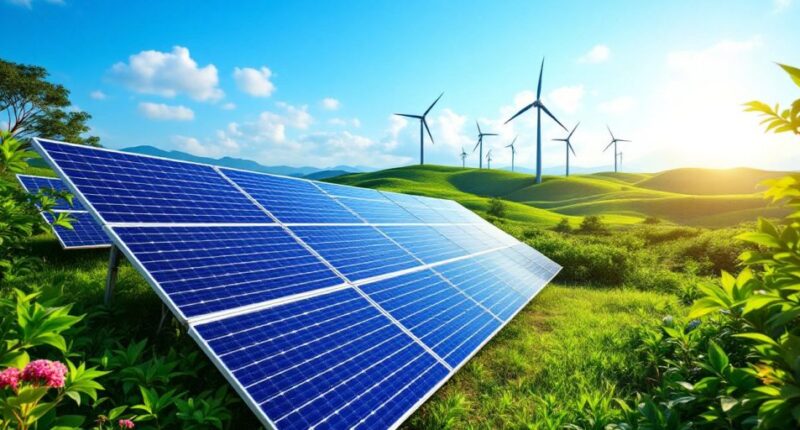Malaysia is making significant strides towards a sustainable future, with Sarawak aiming to quadruple its renewable energy capacity to 15 gigawatts by 2035. This initiative is part of a broader commitment to a green economy and sustainable urban development, as highlighted by various government officials at recent international forums.
Key Takeaways
- Sarawak plans to increase its renewable energy capacity to 15 gigawatts by 2035.
- The initiative is part of Malaysia's commitment to a green economy and sustainable urban development.
- The government aims to address urbanization challenges while promoting affordable housing and green spaces.
Sarawak's Renewable Energy Ambitions
Sarawak's Premier, Abang Johari, has announced an ambitious plan to quadruple the state's renewable energy generation capacity. This goal is set against the backdrop of the region's rich natural resources, which the government intends to leverage to position Sarawak as a leading renewable energy producer in Southeast Asia.
The initiative is not only about increasing capacity but also about exporting power to neighboring countries, thereby enhancing regional energy security and cooperation.
Commitment to a Green Economy
At the recent 12th World Urban Forum in Egypt, Malaysia's Housing and Local Government Minister, Nga Kor Ming, emphasized the country's commitment to advancing a green economy. He outlined several key strategies:
- Developing New Energy Sources: Malaysia is focused on diversifying its energy portfolio to include more renewable sources.
- Promoting a Circular Economy: The government is encouraging practices that minimize waste and maximize resource efficiency.
- Affordable Housing Initiatives: A target has been set to provide 500,000 affordable housing units by the end of next year, with a focus on incorporating green technologies.
Addressing Urbanization Challenges
With over 80% of Malaysia's population expected to live in urban areas by 2030, the government is taking proactive measures to address the challenges posed by rapid urbanization. Key initiatives include:
- Affordable Housing: Ensuring that low- and middle-income households have access to quality housing.
- Green Spaces: Plans to build and upgrade 1,000 public parks over the next decade to enhance urban quality of life.
- Urban Renewal: The upcoming Urban Renewal Act aims to revitalize dilapidated urban areas, with 534 potential redevelopment sites identified.
Conclusion
Malaysia's ambitious renewable energy goals and commitment to sustainable urban development reflect a proactive approach to addressing environmental challenges. By leveraging its natural resources and implementing strategic policies, the country aims to not only meet its energy needs but also contribute to regional energy security and sustainable growth. As these initiatives unfold, Malaysia is poised to become a leader in the green economy within Southeast Asia.

